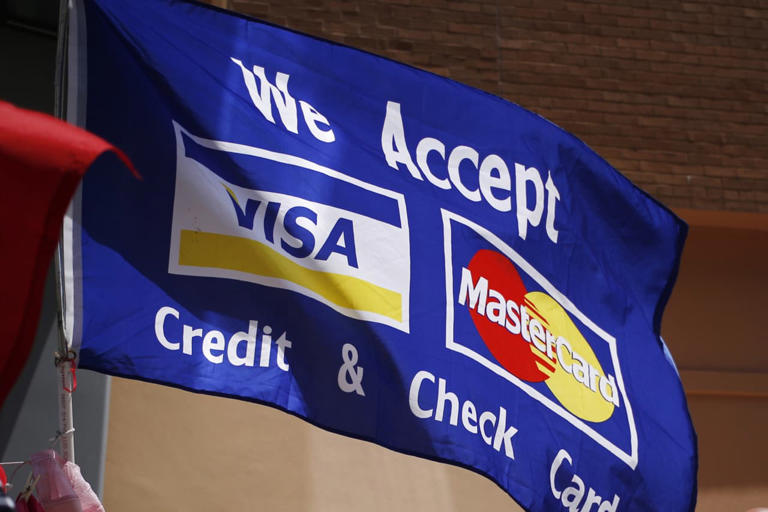The Federal Reserve’s FedNow initiative, launched in July as a real-time payments service, represents a significant leap forward in the U.S. financial system’s infrastructure. Designed to enable instant digital payments at a lower cost compared to traditional methods like bank debit cards or Automated Clearing House (ACH) transactions, FedNow has garnered significant attention from financial institutions and market observers alike.
FedNow’s Competitive Challenge to Visa and Mastercard
At the core of FedNow’s potential impact lies its ability to disrupt the dominance of payment processing giants like Visa and Mastercard. These companies have long been pivotal in facilitating debit card transactions globally, leveraging their extensive networks and established relationships with banks and merchants. However, FedNow’s introduction introduces a new dynamic by offering a more cost-effective alternative for real-time payments.
Cost Efficiency and Market Appeal
One of the key advantages touted by FedNow proponents, including analysts like Dan Dolev from Mizuho Securities, is its lower transaction costs relative to traditional debit card networks. Dolev points out that the pricing per transaction on FedNow is potentially cheaper than using debit cards, posing a direct threat to Visa’s Visa Direct and Mastercard’s Mastercard Send services. This cost differential could incentivize financial institutions to shift towards FedNow for processing real-time payments, potentially reducing their reliance on traditional debit card infrastructure.
Industry Response and Market Dynamics
Since its launch, FedNow has attracted over 800 financial-services firms, including major banks such as JPMorgan Chase, Wells Fargo, and U.S. Bancorp. This broad adoption underscores the growing industry interest in real-time payment solutions that offer speed, efficiency, and lower costs compared to existing methods. While Visa and Mastercard have their own real-time payment services—Visa Direct and Mastercard Send—they now face heightened competition from a federally-backed initiative that promises significant cost savings and operational efficiencies.
Competitive Landscape in Payments
Beyond the challenge posed by FedNow, Visa and Mastercard also contend with competition from a diverse array of players in the payments industry. Fintech companies like PayPal’s Venmo, Square’s CashApp, and Affirm in the buy now, pay later sector have rapidly expanded their digital payment offerings, capturing market share and reshaping consumer preferences. These platforms appeal to a younger demographic accustomed to seamless digital experiences, challenging the traditional dominance of established payment processors.
Evolution of Payment Methods
The rise of digital wallets, peer-to-peer payment apps, and buy now, pay later services reflects broader shifts in consumer behavior towards digital-first financial transactions. This trend is accelerated by the convenience, speed, and transparency offered by fintech innovators, compelling traditional payment processors like Visa and Mastercard to adapt their strategies and enhance their technological capabilities to remain competitive.
Investor Sentiment and Market Performance
In response to the evolving competitive landscape, investors have closely monitored Visa and Mastercard’s performance in the market. While both companies have shown resilience with modest share price gains over the past year, their performance has lagged behind broader market indices such as the S&P 500 and financial sector ETFs. This discrepancy underscores investor caution amid uncertainties surrounding the impact of FedNow and competitive pressures from fintech disruptors.
Strategic Adaptations and Investments
Visa and Mastercard have responded to these challenges by making substantial investments in technology infrastructure and fraud detection capabilities. These investments are critical in maintaining their market leadership and addressing evolving consumer expectations for secure, efficient digital payment solutions. Analysts at TD Cowen highlight these investments as key strengths that position Visa and Mastercard to navigate competitive headwinds and capitalize on emerging opportunities in digital payments.
Potential Opportunities for Tech Firms
While Visa and Mastercard navigate competitive challenges, tech companies like Fiserv and Fidelity National Information Services (FIS) stand to benefit from the growth of FedNow and the broader adoption of real-time payment solutions. These companies provide the essential infrastructure connecting consumers to banks, facilitating seamless digital transactions across platforms. As financial institutions integrate FedNow and expand their digital payment offerings, demand for technology providers like Fiserv and FIS is expected to rise, presenting growth opportunities in the fintech ecosystem.
Strategic Considerations for Visa and Mastercard
Looking ahead, Visa and Mastercard must continue to innovate and adapt their business models to meet evolving market demands. This includes enhancing their digital payment capabilities, forging strategic partnerships with fintech innovators, and leveraging their global networks to drive transaction volume and revenue growth. The ability to differentiate through superior technology, robust security measures, and customer-centric solutions will be pivotal in maintaining their competitive edge amidst increasing competition and regulatory developments.
Conclusion: The Future of Payments and Strategic Imperatives
The rollout of FedNow by the Federal Reserve marks a transformative milestone in the payments industry, signaling a shift towards real-time, cost-effective digital payment solutions. While Visa and Mastercard face intensified competition from FedNow and fintech disruptors, their strategic investments in technology and market leadership position them well to navigate challenges and capitalize on emerging opportunities.
Investors, stakeholders, and industry participants will continue to monitor how Visa and Mastercard adapt their strategies in response to competitive pressures and evolving consumer preferences. The ability to innovate, collaborate, and differentiate in a rapidly changing landscape will determine their ability to sustain growth, enhance shareholder value, and shape the future of digital payments globally. As FedNow and other innovations reshape the payments ecosystem, strategic agility and foresight will be essential for success in an increasingly digital economy.
